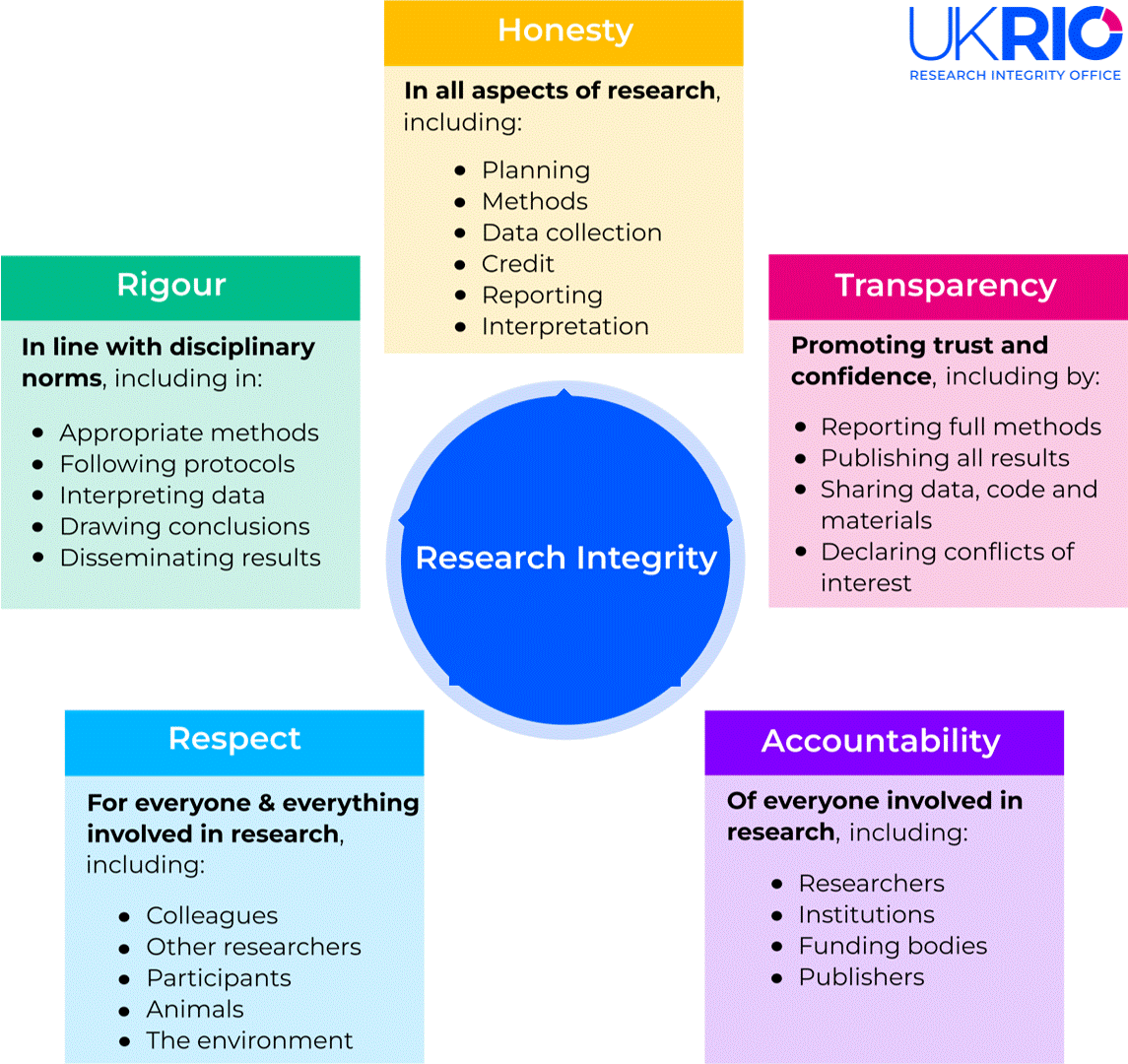What is Research Integrity?
What is Research Integrity?
Research integrity refers to all of the factors that underpin good research practice and promote trust and confidence in the research process. Research integrity covers all disciplines of research and all sectors where research is carried out.
Research integrity covers all research and the whole lifecycle, from the initial idea and design of the project through the conduct of the research and its dissemination. It also covers making sure that environments and systems for research safeguard and enhance good research practice, rather than hinder it – often described as ‘research culture‘.

Graphical representation of research integrity based on the core areas described in The Concordat to Support Research Integrity 2019, created by UKRIO. To download the static version click here. To download the moving version click here.
The Singapore Statement agreed at the 2010 World Conference on Research Integrity (WCRI) sets out four principles:
- Honesty in all aspects of research
- Accountability in the conduct of research
- Professional courtesy and fairness in working with others
- Good stewardship of research on behalf of others
The UK Concordat to support Research Integrity (2025) sets out five principles for research integrity:
Honesty is crucial, from the presentation of research ideas and goals, through to authorship and financial contributions, and on to findings. Examples include honesty in reporting research methods and procedures; gathering data and information; referencing work; representing and acknowledging the work of others; conveying interpretations; and making justifiable claims based on research findings.
Rigour is demonstrated by behaviour that is in line with prevailing disciplinary norms and standards, including the use of appropriate methods. It may be evidenced through adherence to procedures, standards of practice and agreed protocols, as appropriate, and is expected when drawing interpretations and conclusions from research, including when communicating findings. The integrity of the research record should be protected through secure and rigorous approaches.
Transparency and open communication provide the foundation for the actions taken when conducting or communicating about research. Examples may include: declaring potential competing interests; reporting research data collection methods; acknowledging the use of tools such as emerging technologies; analysing and interpreting data; and publishing or otherwise sharing findings. This may include appropriate open research practices. It permits humility in the process, acknowledging errors committed in good faith and ensuring honest mistakes are seen as productive elements of research.
Care and respect are expected for everyone and everything involved in the research system, and for the protection of the integrity of the research record. They should be extended to everyone involved in the research process, all participants in research, and for the subjects, users and beneficiaries of research, including humans, animals, the environment and cultural objects. Those engaged with research must also show care and respect for the integrity of the research record.
Accountability is expected of everyone individually and collectively to create a research environment in which diverse individuals and organisations are empowered and enabled to own the research process and be accountable for their contributions to the research record. This includes being accountable to participants involved in research, and a responsibility to hold individuals and organisations to account when behaviour falls short of the standards set by the Concordat.
Research integrity in the UK
This map demonstrates the complex research integrity landscape in the UK and how UKRIO, the UK’s national advisory body for research integrity, fits into it.
